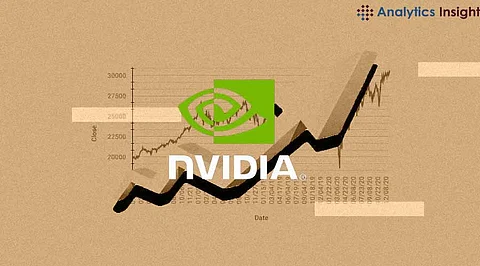

Nvidia Corporation (NVDA) has been a focal point in the technology sector, especially with its significant role in artificial intelligence (AI) and graphics processing units (GPUs). At the time of writing, Nvidia's stock is trading at $130.88, reflecting a 0.03356% increase from the previous close. This article delves into whether Nvidia stock is overvalued or remains a viable investment, considering recent financial data, market trends, and analyst insights.
In the fiscal year 2024, Nvidia reported a revenue of $60.92 billion, a substantial increase from $26.97 billion in 2023. Net income also saw a significant rise, reaching $29.76 billion in 2024 compared to $4.37 billion the previous year. This growth is largely attributed to the surge in demand for AI-driven technologies and Nvidia's leading position in providing advanced GPUs for data centers and AI applications.
Nvidia's prominence in the AI sector has been reinforced by its innovative product lineup, including the Hopper and Blackwell architectures. The Hopper-based H100 accelerators experienced high demand throughout 2023, with approximately 500,000 units sold in the third quarter alone. In March 2024, Nvidia unveiled the Blackwell architecture, introducing the B100 and B200 datacenter accelerators designed to cater to the evolving needs of generative AI applications. Despite initial production challenges, including a design flaw that affected yields, the issue was resolved in collaboration with TSMC, and by November 2024, the entire 2025 production of Blackwell chips was reportedly sold out.
As of February 2025, Nvidia's market capitalization stands at approximately $2.2 trillion. The company's forward price-to-earnings (P/E) ratio is 40.10, higher than the sector median of 25.16, indicating a premium valuation. The price-to-sales (P/S) ratio is 22.44, significantly above the sector median of 3.22. These metrics suggest that investors are willing to pay a premium for Nvidia's growth prospects, particularly in the AI and data center markets.
Analysts maintain a positive outlook on Nvidia stock. Piper Sandler's Harsh Kumar anticipates that Nvidia's revenue will exceed expectations by $1.8 billion, driven by strong demand for AI accelerators and the upcoming Blackwell chip. Similarly, Evercore ISI's Mark Lipacis believes that production delays in Blackwell chips will not adversely affect Nvidia due to sustained demand for its existing products. The average 1-year price target for Nvidia is $175.40, suggesting a potential upside of approximately 34% from the current trading price.
The emergence of competitors, such as China's DeepSeek, which claims to produce high-performance AI models with less powerful hardware, has introduced new dynamics into the market. In January 2025, Nvidia experienced a significant market capitalization loss of nearly $600 billion following DeepSeek's announcement. However, major customers like Amazon, Meta, and Google have reaffirmed their commitment to Nvidia, projecting increased capital expenditures on AI infrastructure and emphasizing ongoing partnerships. Amazon, for instance, plans to invest over $100 billion in AI infrastructure in 2025, indicating sustained demand for Nvidia's products.
While Nvidia's growth trajectory appears robust, several risks warrant consideration:
Valuation Concerns: The elevated P/E and P/S ratios suggest that the stock is priced for perfection. Any deviation from growth expectations could lead to significant stock price adjustments.
Geopolitical Factors: Nvidia's substantial exposure to international markets, particularly China, poses risks amid potential trade tensions and regulatory challenges.
Supply Chain and Production Issues: Past production challenges, such as those experienced with the Blackwell chips, highlight vulnerabilities in the supply chain that could impact future performance.
Nvidia's leadership in AI and GPU technologies, coupled with strong financial performance and positive analyst sentiment, positions it favorably in the tech sector. However, the premium valuation, competitive pressures, and external risks necessitate careful consideration. Investors should weigh these factors against their risk tolerance and investment horizons when evaluating Nvidia's stock as a potential addition to their portfolios.
